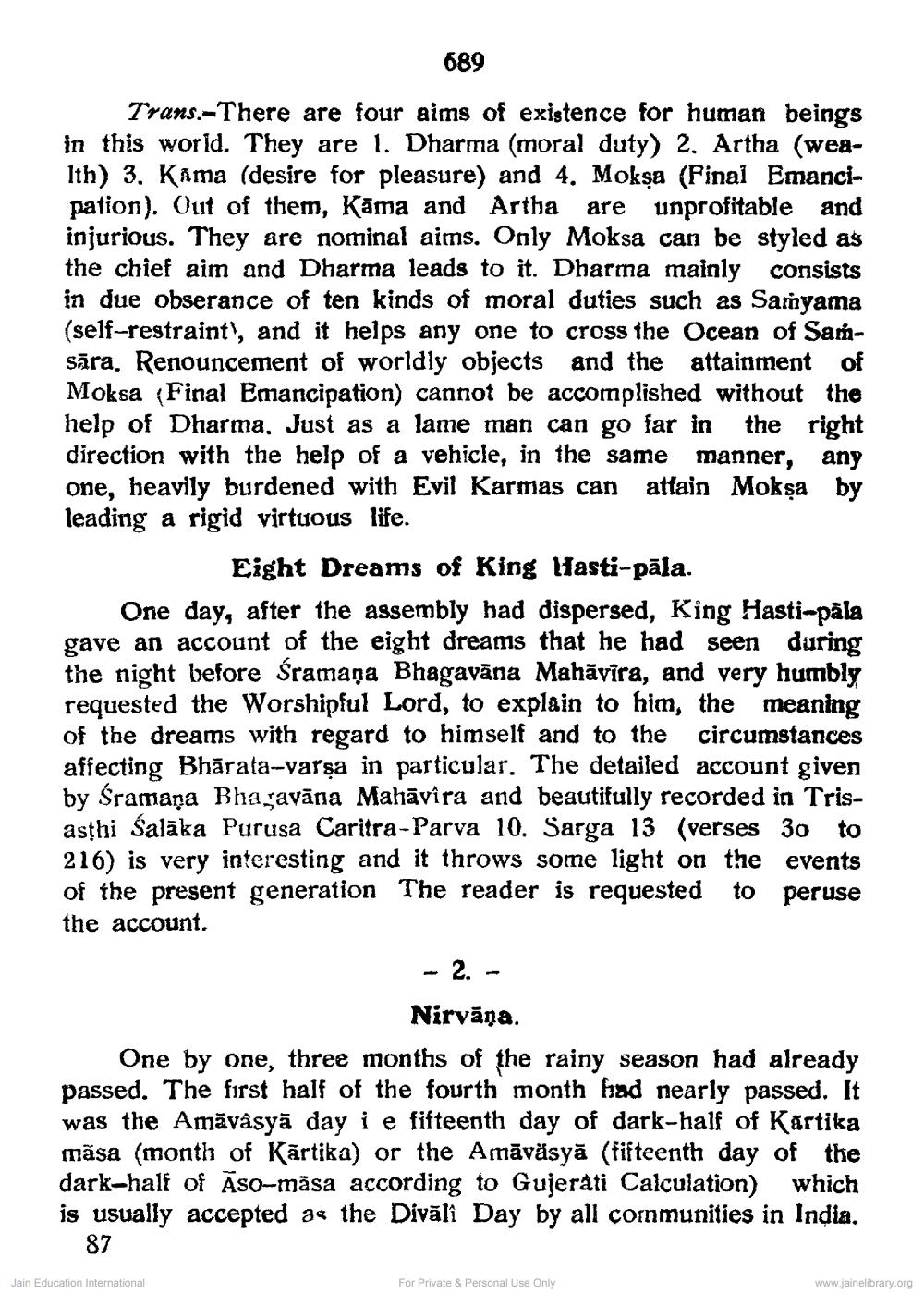________________
089
Trans.-There are four aims of existence for human beings in this world. They are 1. Dharma (moral duty) 2. Artha (weaIth) 3. Káma (desire for pleasure) and 4. Mokşa (Final Emancipation). Out of them, Kāma and Artha are unprofitable and injurious. They are nominal aims. Only Moksa can be styled as the chief aim and Dharma leads to it. Dharma mainly consists in due obserance of ten kinds of moral duties such as Samyama (self-restraint), and it helps any one to cross the Ocean of Sansāra. Renouncement of worldly objects and the attainment of Moksa (Final Emancipation) cannot be accomplished without the help of Dharma. Just as a lame man can go far in the right direction with the help of a vehicle, in the same manner, any one, heavily burdened with Evil Karmas can attain Mokşa by leading a rigid virtuous life.
Eight Dreams of King Hasti-pāla. One day, after the assembly had dispersed, King Hasti-păla gave an account of the eight dreams that he had seen during the night before śramaņa Bhagavāna Mahāvīra, and very humbly requested the Worshipful Lord, to explain to him, the meaning of the dreams with regard to himself and to the circumstances affecting Bhārata-varsa in particular. The detailed account given by Śramapa Bhagavāna Mahāvira and beautifully recorded in Trisasthi Salāka Purusa Caritra-Parva 10. Sarga 13 (verses 30 to 216) is very interesting and it throws some light on the events of the present generation The reader is requested to peruse the account.
- 2. -
Nirvana.
One by one, three months of the rainy season had already passed. The first half of the fourth month had nearly passed. It was the Amăvâsyā day i e fifteenth day of dark-half of Kartika māsa (month of Kārtika) or the Amāväsyā (fifteenth day of the dark-half of ASO-māsa according to Gujerati Calculation) which is usually accepted as the Divālî Day by all communities in India,
87
Jain Education International
For Private & Personal Use Only
www.jainelibrary.org




